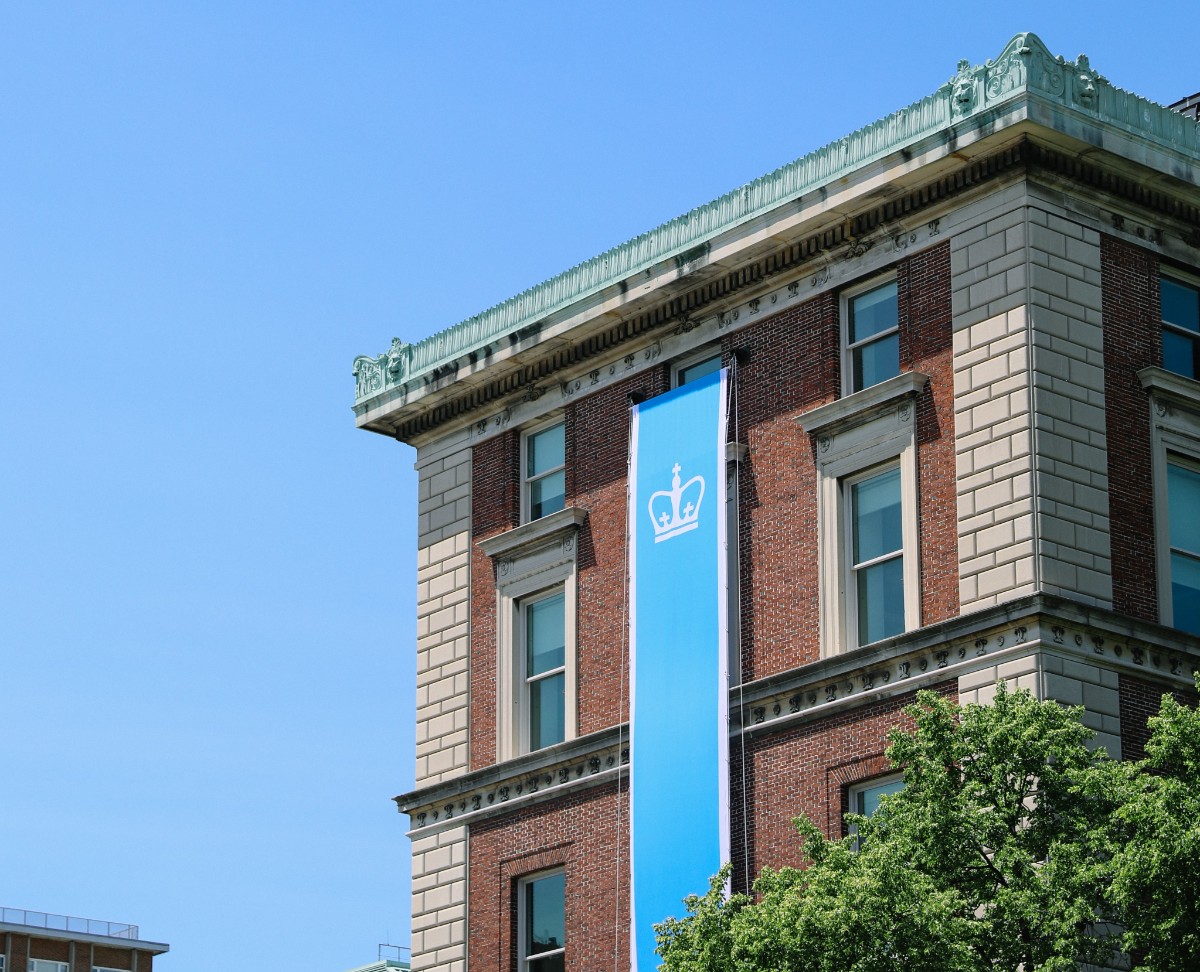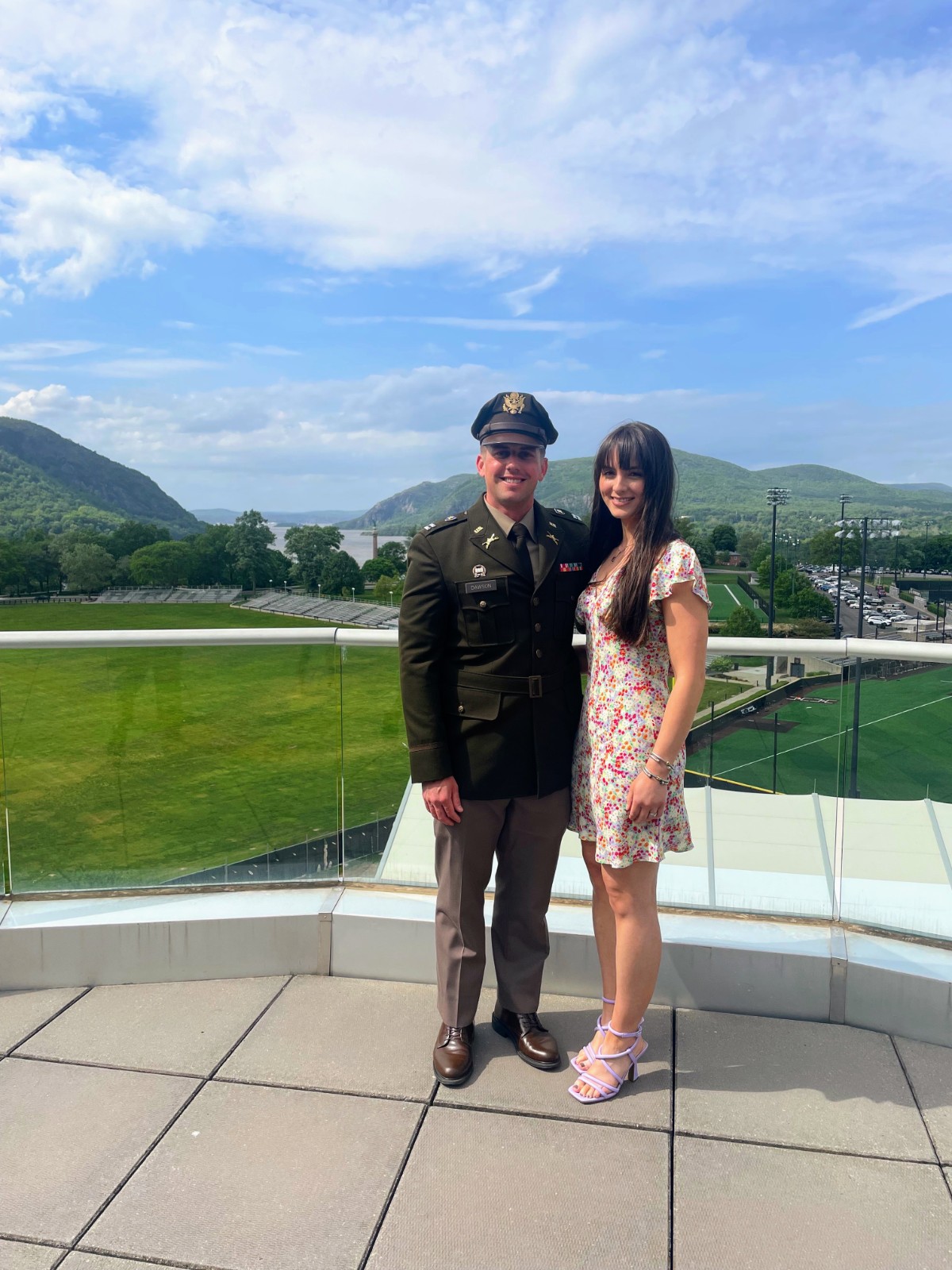Dear Students,
Welcome and welcome back to TC!
It’s been wonderful to see many of you around campus, in the halls, in the classroom, at Everett Café and even in the library (already!). I feel energized to begin a new semester and a new year with all of you in our learning community.
Last week I happened to glance at a light blue Post-it I’ve had on my dresser since the Spring semester of 2020. It’s been on my dresser so long it usually doesn’t even register because it just blends in with the candles, little jewelry boxes, perfume bottles, many tubes of hand cream, and random family photos that are piled there. I’m not even sure why I noticed it all of a sudden.
My younger son, Mateo, left it for me one afternoon while I was holed up in my bedroom teaching on Zoom, clearly to pre-empt my texts about where he was and what he was doing. He wrote on it, “Went outside. I HAVE hand sanitizer. I WILL social distance.” Reading it now instantly transported me back to the early days of the pandemic, when so much of our lives was upended and when it felt like we were standing in the middle of the change curve. I’ve saved Mateo’s note these past five years to remind me of that time, of how it felt, of what we did, and most importantly, of what we learned.
One thing I learned in 2020 was that the TC S-OP community is as strong, smart, caring, supportive, innovative, flexible, and resilient as I always claimed it was. I saw firsthand how the S-OP students, staff, faculty and alums rose to the challenges of the pandemic and figured out how to continue our shared work of teaching, learning, researching, and practicing organizational psychology while also supporting one another and keeping our community connected and thriving.
While we are not currently in a global pandemic, thank goodness, I am getting that “standing in the middle of the change curve” feeling these days. We are currently living amidst A LOT of change, whether that is in Los Angeles, the Middle East, Washington, DC, South Korea, or here in New York City. The recent large-scale, rapid-fire changes announced by the new United States Presidential Administration are just one example of our need to tap into our knowledge, our talents and our community in order to navigate these uncharted waters. Easier said than done, I know, but I also know how strong and capable we are.
Jamais Cascio, a San Francisco-based author and futurist coined the BANI model (in place of the VUCA model) to describe the characteristics of our current global context. BANI stands for brittle, anxious, non-linear and incomprehensible. The words may look daunting at first glance, but I actually think this model reminds us of how our own capacities and skills have prepared us to meet this moment.
If a system or organization is brittle, with outdated, rigid structures and policies, we in S-OP have learned we can meet it with adaptability and agility. We know that high rates of anxiety are lowered by building and nurturing a sense of community in our teams and organizations and we have expertise on reducing conflict and promoting organizational flourishing in S-OP. We understand that change, progress, failure and growth are often non-linear and we have experience with disruption and transformation. Most systems are incomprehensible at times (Group Relations Conference anyone?) and we are smart enough to know we can never know everything no matter what our expertise. Leaning into a growth mindset and staying curious about what is explicit and what is implicit is a powerful way we know how to approach and improve what is incomprehensible in our organization and in our world.
TC’s president, Thomas Bailey, emailed us all earlier today with the reminder that “Our core values and principles are a guiding light as we move forward together.” I would add that our expertise, thoughtfulness, and care for one another in the S-OP program is also part of that guiding light. We are up to the challenge of BANI. We are up to the challenge of this moment. As we begin 2025 and the year of the snake I hope we will remember to harness our own power to transform groups, organizations, systems and our shared world. Indeed, let’s move forward together.
Warmly,

Current Student Profile
Marya is a second-year M.A. student in the Social-Organizational Psychology program at Teachers College, Columbia University. Prior to graduate school, Marya spent over a decade in food and hospitality, where she led multi-unit operations and spearheaded leadership training programs at a major coffee company. Her experience in talent development informs her approach to improving organizational processes and employee growth.
Currently, Marya is an HR Business Partner Intern at the Metropolitan Transportation Authority (MTA), focusing on strategic initiatives in talent management and organizational effectiveness. The S-OP program has provided her a wealth of learning, including the opportunity to join Dr. Caryn Block’s research workgroup studying inclusive leadership and diversity dynamics in organizations. Marya will continue her research during her final semester and hopes to grow her career in talent management and organizational development.
Marya is a proud member of the Organization and Human Development Consulting Club (OHDCC) and Psi Chi, the International Honor Society in Psychology. She will be graduating in May 2025 and welcomes connections on LinkedIn!
Alumni Profile
Brett is a United States Army Major, an S-OP alumnus, and a graduate of the Eisenhower Leader Development Program (ELDP) Cohort 18 at the United States Military Academy at West Point. Brett is a 2013 graduate of Boise State University, where he earned a Bachelor of Business Administration. He is from Santa Clarita, California, and has served in several assignments within and outside the United States through his time in the military.
After graduating from Teachers College, Brett served at West Point, where he was the primary coach and mentor for 120 cadets. He helped them balance academic, physical fitness, and military requirements while developing their character through coaching.
Every day, Brett leverages his experience from the S-OP Program at TC. He frequently reflects on his research about leadership practices and coaching, but it's his intense interest in group dynamics and organizational development that truly drives him. Brett continues implementing the knowledge and skills he has learned in his current role.
Outside work, Brett enjoys taking long walks, bike rides, and hiking up and down the Hudson Valley with his wife, Tory, and their dog, Emmy.

